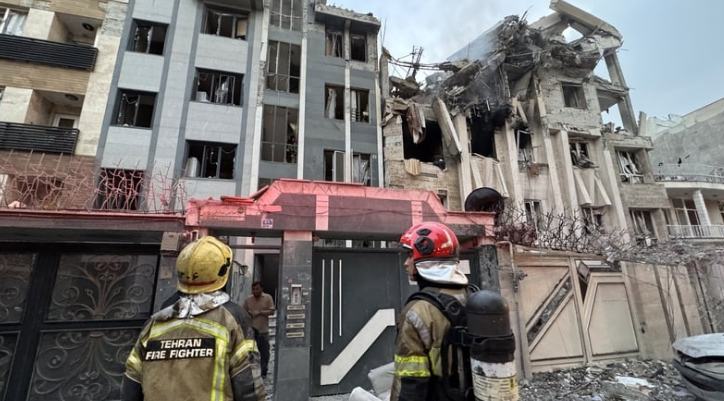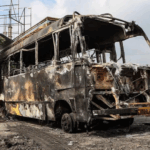Tensions in the Middle East soared on Friday after Israel launched a wave of airstrikes across Iran, targeting nuclear and military facilities and killing several senior commanders and nuclear scientists. Iran swiftly retaliated with drone attacks and declared the Israeli assault a “declaration of war,” raising fears of a wider regional conflict.
The strikes began in the early hours of the morning, coinciding with a day of rest and prayer in Iran. Among the key targets was the underground nuclear site at Natanz, where Iranian state media reported multiple impacts, though most damage was said to be at surface level. The UN’s International Atomic Energy Agency (IAEA) confirmed that nuclear facilities at Fordow and Isfahan were not hit, according to Iranian authorities.
In addition to strategic infrastructure, the strikes killed several top Iranian officials. Revolutionary Guards commander Hossein Salami and armed forces chief Mohammad Bagheri were among the dead. The head of Iran’s aerospace division, Amirali Hajizadeh — responsible for overseeing the country’s ballistic missile programme — was also reported killed. Iranian media said several nuclear scientists were among the casualties, and 95 people were injured. Ali Shamkhani, a senior adviser to Supreme Leader Ayatollah Ali Khamenei, was reportedly wounded.
Israeli Prime Minister Benjamin Netanyahu vowed the operation would “continue as many days as it takes.”
Iran responded by launching around 100 drones toward Israel. The Israeli military said most were intercepted before reaching their targets, but the scale of Iran’s missile arsenal remains a key concern. Supreme Leader Khamenei warned Israel would face a “bitter and painful” fate.
Iran’s Foreign Minister described the strikes as a formal act of war and called for emergency action from the UN Security Council. Tehran has also threatened to target U.S. military bases in the region, though Washington evacuated non-essential personnel from several Middle Eastern facilities ahead of the attack.
President Donald Trump confirmed Israel had notified him before the operation but insisted the U.S. was not involved. Still, he issued a stern warning to Tehran: “The next planned attacks will be even more brutal.” He urged Iran to return to negotiations over its nuclear programme, which had stalled in recent weeks. Talks scheduled for Sunday in Oman are now likely to be cancelled.
Trump’s Secretary of State, Marco Rubio, warned Iran not to target U.S. assets: “The United States will protect its forces.”
The strikes have drawn international concern. European leaders from France, Germany, and the UK are expected to hold emergency talks. Ireland’s Foreign Minister Simon Harris called the situation “extraordinarily dangerous” and advised Irish citizens against travelling to Israel.
Meanwhile, oil prices surged to around $75 per barrel, and airlines including Emirates, Air France, Qatar Airways, and Lufthansa cancelled flights to the region. Syria also closed its airspace.
In Tehran, long queues formed at petrol stations and shops as residents prepared for possible further conflict. Public protests erupted in the capital as anger mounted over the Israeli attacks.

















